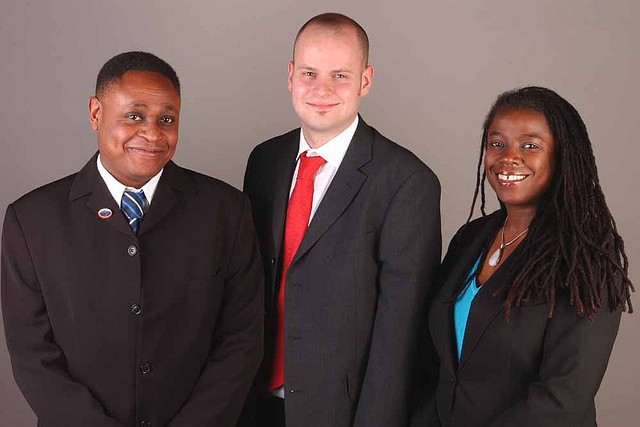In the interests of equality and diversity, our representatives ought to be representative
Should our political representatives be representative? And if so, does that mean that politicians are incapable of people who do not look and sound like them? Reflecting on the recently released national councillor census, the Centre for Public Scrutiny’s Jessica Crowe argues that representatives should be representative, with the whole democratic process benefiting from a wider range of voices in the process.
I’ve been asked to comment on a range of diversity and representation issues recently, which has prompted me to think carefully about where my organisation, the Centre for Public Scrutiny, stands and what we can do to better promote equality.
The national councillor census came out recently, showing that councillors’ gender profile, ethnic origin, disability status and caring responsibilities have changed very little between 2001 and 2013. In 2013:
- 67.3 per cent of councillors were male (70.7 per cent in 2001)
- 96 per cent were of white ethnic origin (97.3 per cent in 2001)
- 13.2 per cent had a long-term health problem or disability
- 27.9 per cent had one or more caring responsibilities.
Councillors are also an ageing population, with an average age of 60.2 in 2013, up from 59.7 recorded in 2010, and 57.8 in 2004. Around one in eight (12.0 per cent) were aged under 45, a proportion which has changed little since 2004. The proportion aged 70 or over has increased from 13.8 per cent to 22.2 per cent over this period.
There are also more councillors who are retired – up from 36.8 per cent in 2001 to 46.6 per cent in 2013 – and fewer who are in full-time employment – falling steadily from 27.2 per cent in 2001 to 19.2 per cent this year.
Does this matter? After all, elected representatives are there to represent the views of everyone in their patch, regardless of who they are and whether or not they voted for them or look like them. When I was a middle-class, white, female councillor I sought faithfully to speak up for all the residents of the very diverse and deprived ward I represented. But on some level it does matter and representatives ought to be broadly just that: representative.
It’s an issue of fairness and equality, but also one of making better decisions. There was a fascinating article in the New Statesman recently entitled “Having too many clever men around Ed Miliband is making the Labour Party stupider”. In it, Ian Leslie highlights two academic books which suggest that having a wide range of people who think in different ways, even if some of them are “stupid”, will make the collective cleverer than a group of “clever” people who all have a similar approach to life:
“In his book The Difference, Scott Page, from the University of Michigan, explains that different people deploy different ‘cognitive toolboxes’: skills, rules of thumb, mental models. The greater the variety of toolboxes, the more tools are brought to bear on the problem at hand, and the more likely it is that a good answer will be found.
“The political scientist Hélène Landemore, of Yale University, argues brilliantly in her book Democratic Reason that a democracy will usually reason its way towards good decisions, not despite, but because of the fact that its citizens have very different levels of education and information. In her view, democracy is not just fairer than other systems of governance, but smarter, because it harnesses the power of cognitive diversity to scale.”
Ian Leslie emphasises that this “cognitive diversity” is different from “cultural diversity”, but that both are important for different reasons. I used this thinking in speaking at a very interesting gathering of Commonwealth parliamentarians recently, arguing that it is vital to get more diversity into the witnesses that give evidence to select committees. It is important for fairness reasons but also because scrutineers need to hear a variety of perspectives and experiences, from experts, professionals, service-users, the public, other interested parties etc, to enable them to triangulate (and exercise judgment over) what they’ve heard in reaching their conclusions. This is what I have previously described as the “TripAdvisor” approach to evidence-based policy-making, and Ian Leslie’s article reinforces my view of how important this approach is for scrutiny.
Democratic Audit recently published some useful research showing that currently Westminster’s select committees are not good at this: over 75% of their witnesses overall are male. While it may be difficult to get a 50:50 split in ministerial or senior civil servant witnesses given their gender balance, what is less excusable is that in select committees’ choice of ‘independent experts’, the gender bias is even more pronounced: 83% of these witnesses were men.
While our political representatives are less than representative in terms of their own gender, age, ethnic and other characteristics, it is even more important that they make an effort to ensure they are hearing from a wide range of other perspectives to broaden their own individual understanding and experiences in reaching their decisions. A few years ago, CfPS’s own research found that this was one area where local authority scrutiny differed quite a lot from parliamentary scrutiny – there was much more emphasis placed on external community and public engagement in the scrutiny process at local level than nationally. And excellent examples like Brighton and Hove’s recent review of trans equalities issues, which won one of our Good Scrutiny Awards this year, show what can be done to enable the voices of very marginalised communities to be heard.
What about CfPS? We are a pretty representative and egalitarian organisation on a number of measures (40% of the Board are women and 20% are BME; our staff team is 77% female and 22% BME; our pay ratio is 1:3 between our lowest and highest paid staff, although we do not have a formal policy on fair pay, which is a live issue in the charity sector at present). But we sorely need to update our own equalities and diversity policy and to be more transparent about our (real) commitment to these issues.
My Board are correctly challenging the organisation to be ambitious but also realistic and only make commitments to which we can reasonably and successfully hold. We plan a two stage process – setting out some challenging but achievable objectives and the steps we need to take to meet them in full. This will probably include considering our website which is not as accessible as it should be, and setting out more clearly the steps we do take already to ensure our services are open and accessible to all, so that the Board and others can hold us to account for them. We will be consulting on this later in the year and welcome all stakeholders’ views.
—
Note: this post originally appeared on the Centre for Public Scrutiny’s blog. Please read our comments policy before posting. The shortened URL for this post is: https://buff.ly/1uK4Cft
—
 Jessica Crowe is Executive Director of the Centre for Public Scrutiny (CfPS)
Jessica Crowe is Executive Director of the Centre for Public Scrutiny (CfPS)






 Democratic Audit's core funding is provided by the Joseph Rowntree Charitable Trust. Additional funding is provided by the London School of Economics.
Democratic Audit's core funding is provided by the Joseph Rowntree Charitable Trust. Additional funding is provided by the London School of Economics.
AS Politics unit 1: 83% of select committee members are male & plus other shocking stats on #representation https://t.co/CjVPa1Iqm2
Inequality runs deep in UK govt: 83% of experts called to Parliament select committees are male. Via @democraticaudit https://t.co/OQiV1iRVP5
In the interests of equality and diversity, our representatives ought to be representative https://t.co/HmWYf6MbkM
In the interests of equality and diversity, our representatives ought to be representative https://t.co/3pmToHIT5C
…#Equality and #diversity, our representatives ought to be representative https://t.co/yNUW83bA4P via @democraticaudit #democracy #power